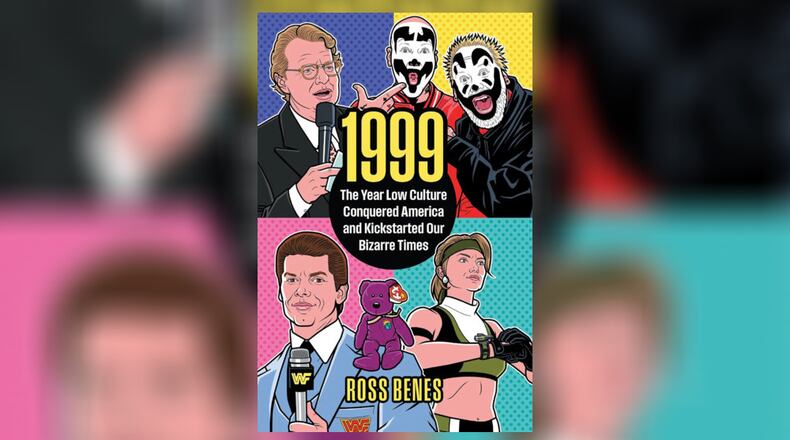In the opening chapter, “The Jerry Springer Administration: How Talk Shows and Reality TV Foreshadow Political Movements” Benes makes the case that talk shows and reality TV coursen the ways that we engage with one another. He points to the late Jerry Springer as a key figure in this transformation.
Springer’s programs often dealt with trashy subjects. Fights between guests were not uncommon. His program became a model for other entertainments. Benes believes these types of shows have pervasive influence. He points to politicians like George Santos, who acted like he was on reality TV. We recently elected a president again who got famous while starring on reality TV.
1999 was the year the Beanie Baby craze peaked. Benes noticed a through line between those obsessive collectors of essentially worthless toys and our current excesses, like people paying millions for NFTs (nonfungible tokens). He writes about an auction of an NFT that sold for 69 million dollars. The new owner does not own the copyright for the artwork. Ridiculous, absurd.
In “Pro Wrestling and the Making of the Modern World: How Kayfabe Bled into Society” he scrutinizes how the concept of “kayfabe,” definition: “tacit agreement to behave as if something is real, sincere, or genuine when it is not” was transferred from staged pro wrestling into greater society. Now we expect falsehoods, we actually anticipate them.
Benes is a fan of the musical group Insane Clown Posse. He looks at how they mastered attracting hardcore fans, known as “Juggalos” and how skillful cultivation of their fan base compares with some blindly loyal adherents to other causes.
In “Porn Paradox: How Smut Penetrated American Culture” we see how the internet has made pornography widespread. Benes explains “Porn’s main influence will come from how it’s wielded in the political economy, shapes our laws, and guides the products people use in their everyday lives.”
The Columbine mass shooting happened in 1999. Many people, especially politicians, blamed video games for that violence. We have a long history of blaming things for violence: dime novels, then movies, next radio, then comic books, rock and roll, TV, and ultimately, video games. The killers played “Doom.” In the closing chapter the author makes a persuasive argument that video games do not engender violence as has been claimed. Video games are now a billion dollar industry, greater than all other forms of entertainment combined.
This book will make you think. What were you doing in 1999? Watching Jerry Springer? Playing video games?
Vick Mickunas of Yellow Springs interviews authors every Saturday at 7 a.m. and on Sundays at 10:30 a.m. on WYSO-FM (91.3). For more information, visit www.wyso.org/programs/book-nook. Contact him at vick@vickmickunas.com.
About the Author


